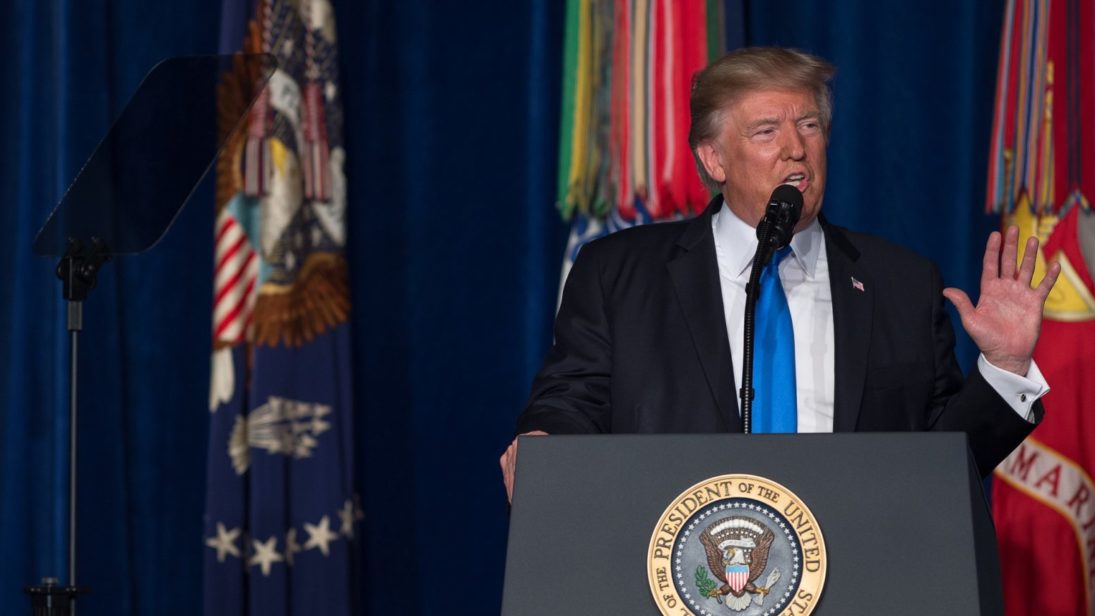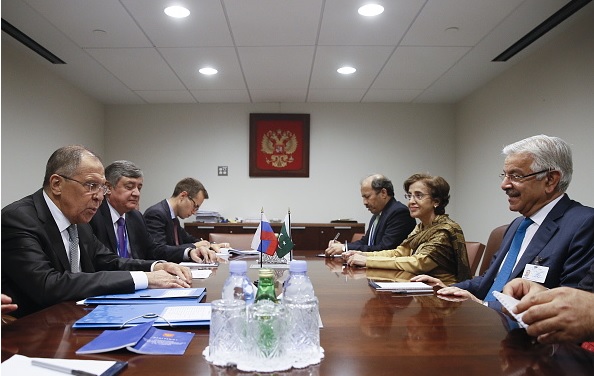
In August, U.S. President Donald Trump announced his Afghanistan and South Asia strategy, which has brought Pakistan to a crossroads. Apart from reprimanding Pakistan for its counterterrorism efforts, Trump made it abundantly clear that the United States considers India its closest ally in the region. Promoting India to play a bigger role in the region might be an effective tool in hedging against China and punishing Pakistan for refusing to burden the responsibilities of U.S. failures in Afghanistan. However, it is unlikely to ensure peace in the war-torn country owing to the policy’s lack of consideration for political accommodation of the warring factions and nation-building in Afghanistan. Moreover, playing New Delhi against Islamabad and Beijing cannot help ensure an effective balance of power in the region. For Pakistan, this new dynamic brings about prospects for a regional policy shift.
The recent warmth in United States-Pakistan ties is more piecemeal politics of placation rather than an aligning of shared objectives for long-term coordination. In the diplomatic and strategic quarters of Pakistan, there is no disagreement on sustaining U.S.-Pak ties. However, most are convinced that Trump’s Afghan policy is self-defeating owing to the lack of consideration for a negotiated solution and for Pakistan’s strategic choices in the backdrop of the regional dynamics of Afghanistan. Pakistan faces two choices: either bow down to U.S. pressure to ‘do more’, or diversify its regional partners to include countries such as Russia while primarily leaning on the support of its time-tested friend, China. In Islamabad, support for the latter option while still trying to improve relations with the United States is gaining momentum. However, while Pakistan diversifies its partners and seeks to further cement ties with Russia, it should guard against overdependence and bat for a more balanced regional policy.
As Pakistan’s only steadfast regional partner, Beijing has provided Islamabad with much-needed strategic and financial support for decades while also preserving its own fiscal interests. It sees Pakistan as a crucial counterweight to India’s rising stature, a status which has been bolstered by America since the turn of the century. The United States is handling China and Pakistan in a similar manner, dubbing them as a threat to the international order, which will only serve to push them closer to each other. The China-Pakistan partnership has proven durable in the face of numerous challenges such as religious extremism and political instability and is only getting stronger through projects such as the China-Pakistan Economic Corridor (CPEC), part of China’s Belt and Road Initiative. The choice of leaning against a trusted friend like China seems both wise and inevitable for Pakistan. The case of engagement with Russia, however, is quite different.

The trend of Russian readiness to strengthen relations with a country whenever their relationship with the United States becomes strained has brought it closer to Pakistan. Pakistani Foreign Minister Khawaja Asif held consultations with his Russian counterpart Sergei Lavrov on Afghanistan shortly after Trump’s harsh rhetoric against Pakistan. This suggests that Pakistan was seeking diplomatic and strategic support from Russia in the wake of its changing and now challenged alliance with the United States. Apart from this immediate reaction, Islamabad and Moscow have already been engaged in long-term projects like enhanced defense cooperation initiatives such as Russia selling four Mi-35 attack helicopters to Pakistan after lifting its embargo on arms sale to Pakistan, and the recent ‘Friendship 2017’ military exercises. Russia also played an important role in securing full membership status for Pakistan in the Shanghai Cooperation Organization (SCO) while it also hopes for cooperation in the energy sector to meet Pakistan’s dire shortages.
As of now, Pakistan and Russia’s relations are limited to defense and military cooperation. Pakistan is weighed down by the burden of International Monetary Fund (IMF) and World Bank debts, which means the state cannot prove to be a lucrative buyer of Russian arms and ammunition. Russia’s struggling economy can also hardly afford to give away expensive weapons at competitive and reasonable prices. Nevertheless, opportunities for deepening economic ties are ample. Moscow has expressed the desire to enter into a Free Trade Agreement (FTA) with Pakistan, which could increase their bilateral cooperation under the umbrella of CPEC. Since European agricultural products are banned in Russia, Pakistan can prove itself as a reliable exporter of these items to Russia. Energy is also a potential domain of cooperation in which Russian gas and oil companies, especially Gazprom, have expressed interest time and again. If Pakistan-Russian ties are built around economics, the foundation of their bilateral cooperation could be strong enough to navigate many a problem.
However, Russian engagement with Pakistan faces several challenges, calling the sustainability of this relationship into question. A daunting challenge to this relationship is the China factor. Russia’s aspiration for global dominance and economic development clashes with China’s goal of expanding its influence in all corners of the world. Pakistan is yet another area of competition between the two in which the winner would likely be China, on account of its stable state, its economic structure, and its closeness with Pakistan. Pakistan’s track record of forging ties with countries out of dependency makes Russia an implausible long-term ally. Being incentivized by billions of dollars in loans from the United States and in investment from China, Pakistan’s tilt towards Russia is most likely to be limited and temporary. Hence, the two will cooperate in whatever way they can but the likelihood of an axis of cooperation forming among China, Russia, and Pakistan against the Indo-U.S. collaboration is fairly thin.
Recent developments in regional and global geopolitics should deter Pakistan’s policymakers from oversimplifying the complex undertones of international politics. The dilemma of Pakistan’s foreign policy has been its Indo-centric security prism, which shapes its relations with other countries. Pakistan needs to diversify relations with other major powers while cautioning against overdependence on any one of them. It is about time that the country broadens its horizons through multifaceted cooperation and tactful diplomacy. Rebukes from the White House do not justify hasty advances towards the Kremlin. Rather, these evolving ties must be forged on sounder foundations than one fiery speech delivered by a leader who habitually goes back on his own word.
***
Image 1: Jim Mattis via Flickr


